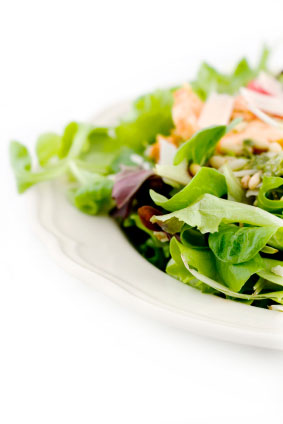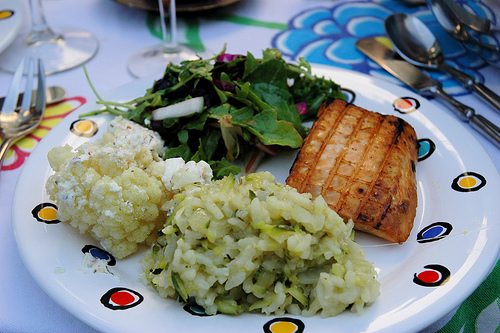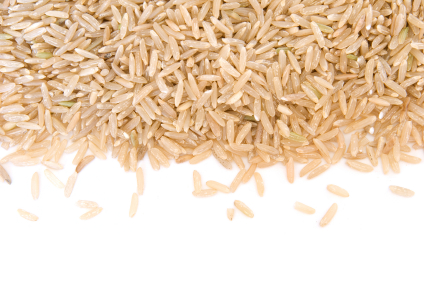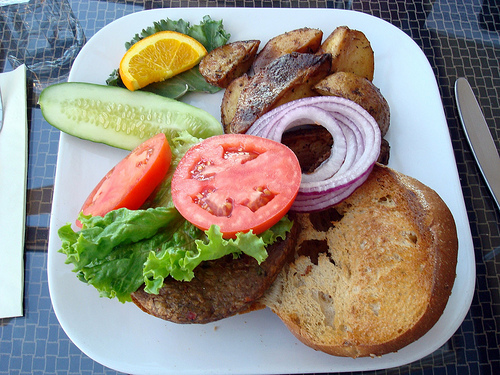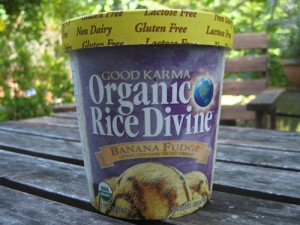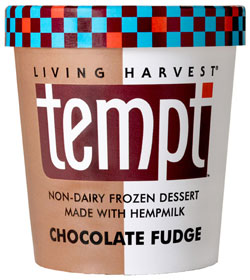Table of Contents
With the rising popularity of vegan meat substitutes and alternatives, more consumers are slowly making the transition to healthier options. Whether you’ve been living a meatless lifestyle or have recently decided to go for healthier plant-based options, it can be a challenge to find the substitute for your favorite foods.
Thankfully, vegan meat, once only seen in specialty grocers, has become more accessible to consumers. They also come in a wide variety that can cater to each person’s taste. Examples of alternatives are those free of cholesterol, contain less fat, or have fewer calories. While there are plenty of options, it’s important to know that not all of them are healthy. Which is why it is important to choose carefully. Read on to learn more about the many vegan meat substitutes and alternatives, and how to find the one that suits you.
The most popular types of vegan meat alternatives are:
- Beans/Legumes
- Seitan/Vital Wheat Gluten
- Jackfruit
- Mushrooms
- Chickpeas
- Soybeans
- Tofu
- Cauliflower
- Cabbage
- Walnuts
The most popular types of vegan meat substitutes are:
- Veggie Burgers & Patties
- Crumbles
- Veggie Chicken Nuggets & Strips
- Veggie Sausages & Hot Dogs
- Veggie Bacon
- Roasts
- Deli Slices
Vegan Meat Benefits

Vegan Meat Is Often More Environmentally Friendly
Meat alternatives typically require fewer resources to produce than traditional meat products. For example, the Good Food Institute estimates that a popular product such as the Impossible Burger requires 96% less land, reduces greenhouse gas emissions by 89%, and reduces water consumption by 87% compared to a beef burger.
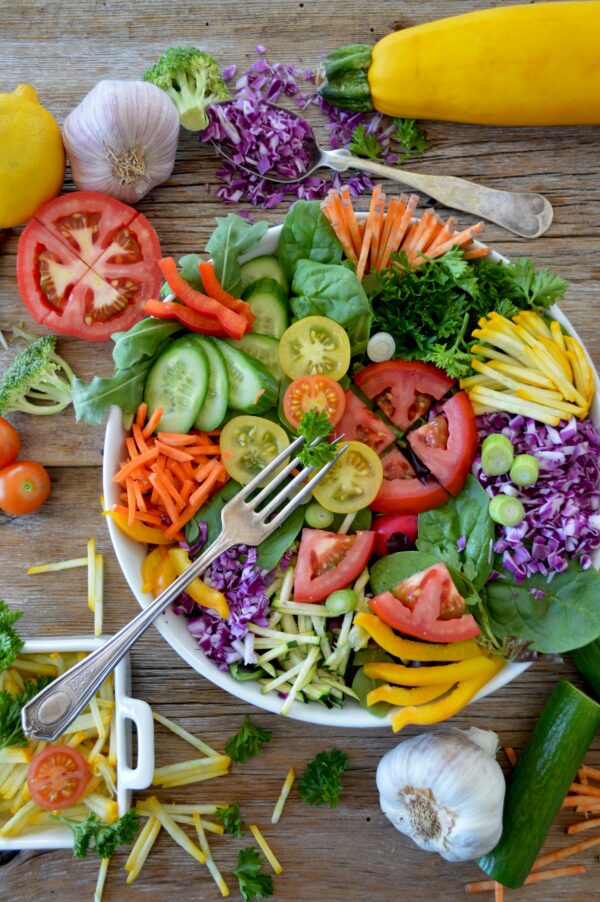
Vegan Meat Alternatives Help Add Extra Veggies Into Your Diet
Choosing vegan meat substitutes is a simple way to add extra veggies to your diet, while still getting much of the nutrition typically found in regular meat (such as protein from beans or lentils). According to the NIH, plant-based diets in developed countries tend to contain all necessary protein and amino acids.

Vegan Meat May Be Easier To Digest
Compared to meat, plant-based meat alternatives can be beneficial to your digestive health. As stated by the NIH, a vegan diet contains more fiber, providing more lactic acid bacteria that provide anti-inflammatory effects and cardiovascular protection.

Vegan Meat May Help Lower Cholesterol & Fat Intake
Vegan meats can contain lower cholesterol and fat levels than regular meat. For example, a single beef patty contains 55mg in cholesterol, while a Boca vegan veggie burger has 0mg in cholesterol. A study conducted by the NIH shows that vegan meats and other plant-based substitutes are lower in total fat, such as saturated fat. In addition, they also offer higher intake in dietary fibers.
The most popular types of vegan meat alternatives are:
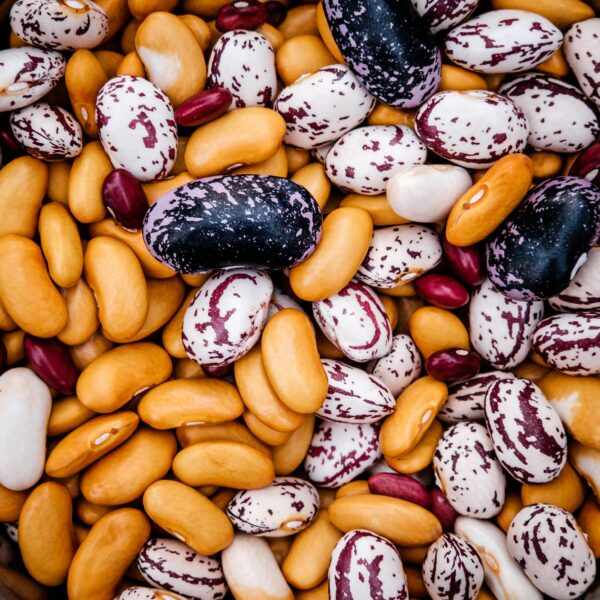
Beans/Legumes
- Common Uses: Most of the time beans will be used as-is or possibly mashed up. They can also be ground up and used to make other forms, like burger patties, while also being added to soups and stews.
- Taste/Texture Profile: Characterized by their grainy texture. The taste can vary, but is more commonly known for its mild taste to the palate.
- Nutritional Value: Beans have little to no total fat, trans fat, salt, cholesterol, while also providing protein, fiber, folate, iron, potassium, and magnesium.
- Recipe Inspiration:
- https://veganheaven.org/recipe/vegan-jambalaya-with-beans/
- https://www.emilieeats.com/cajun-style-vegan-red-beans-rice/
- https://simple-veganista.com/black-bean-burger/
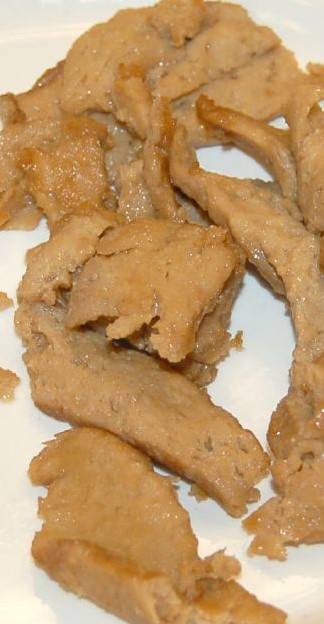
Seitan/Vital Wheat Gluten
- Common Uses: Can be used as strips, cubes, or slices as a substitute for lunchmeat, chicken, and beef. It is most commonly sold in a patty or loaf shape.
- Taste/Texture Profile: Seitan more closely resembles meat than other alternatives because of its dense, slightly rubbery texture.
- Nutritional Value: All nine essential amino acids may be present in seitan, which itself is rich in protein. However, it doesn’t contain a lot of lysine, so be certain to include foods high in lysine in your diet, like beans.
- Recipe Inspiration:
- https://itdoesnttastelikechicken.com/the-quickest-and-easiest-seitan-recipe-vegan-chicken/
- https://lettucevegout.com/recipes/vegan-meat-seitan-recipe/
- https://www.nomss.com/sweet-and-sour-seitan/
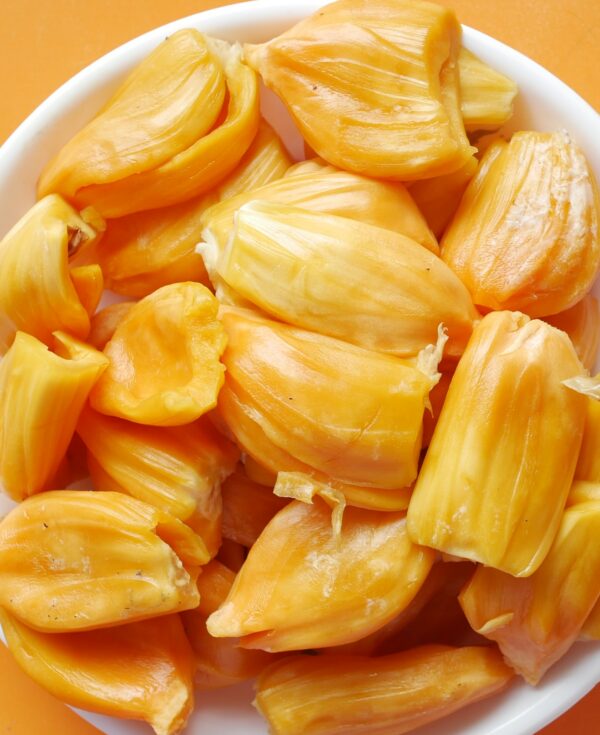
Jackfruit
- Common Uses: Most often used as a shredded meat substitute, jackfruits can be sliced and used in tacos, “pulled pork” sandwiches, and vegetarian curry.
- Taste/Texture Profile: The texture of jackfruit is similar to pulled pork. Although the fruit has a slightly sweet flavor, you won’t be able to tell the difference if you braise it in the appropriate savory sauces.
- Nutritional Value: Jackfruit has a lot of carbs, but contains very little protein. However, it works as a convincing meat substitute when paired with other high-protein foods.
- Recipe Inspiration:
- https://ohmyveggies.com/easy-vegan-jackfruit-curry/
- https://www.kathysvegankitchen.com/bbq-jackfruit-recipe/
- https://veganpunks.com/chinese-jackfruit-stir-fry/

Mushrooms
- Common Uses: Mushrooms are typically sliced or chopped. Some mushrooms, particularly portobello mushrooms, can be sliced and served like steak or chicken strips.
- Taste/Texture Profile: Mushrooms have an earthy, somewhat woodsy, meaty flavor. One of the foods that contains umami, a savory, brothy flavor that spreads across the tongue and stays in your mouth.
- Nutritional Value: Mushrooms are a healthy meat alternative for those attempting to lose weight, as they are low in calories and rich in fiber.
- Recipe Inspiration:
- https://rainbowplantlife.com/creamy-vegan-mushroom-stroganoff/
- https://www.themediterraneandish.com/vegan-shawarma/
- https://cookingwithayeh.com/fried-oyster-mushrooms-vegan-fried-chicken/
- https://veganhuggs.com/grilled-portobello-mushroom-steaks/
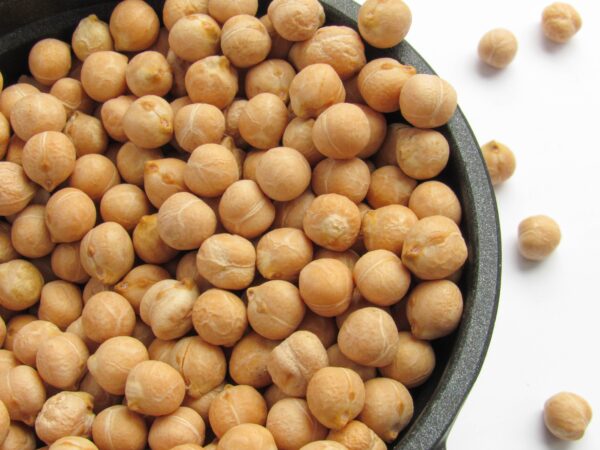
Chickpeas
- Common Uses: Chickpeas can be used as-is for a crunchy bean type of texture. They can also be coarsely mashed or finely blended. They can also be blended with breadcrumbs for kid-friendly nuggets.
- Taste/Texture Profile: Commonly known to have a soft firmness, you can feel the skin break away from the inner flesh as you chew it. Chickpeas also have a mildly grainy texture and a creamy taste, like cooked potatoes.
- Nutritional Value: Since they contain more protein than other types of meat, chickpeas are an integral part of any diet, along with a considerable portion of iron, and have the calcium content similar to milk. They are also rich in fiber, which makes them filling.
- Recipe Inspiration:
- https://veganhuggs.com/easy-vegan-chickpea-curry/
- https://simple-veganista.com/chickpea-tikka-masala/
- https://www.karissasvegankitchen.com/vegan-chickpea-meatballs/
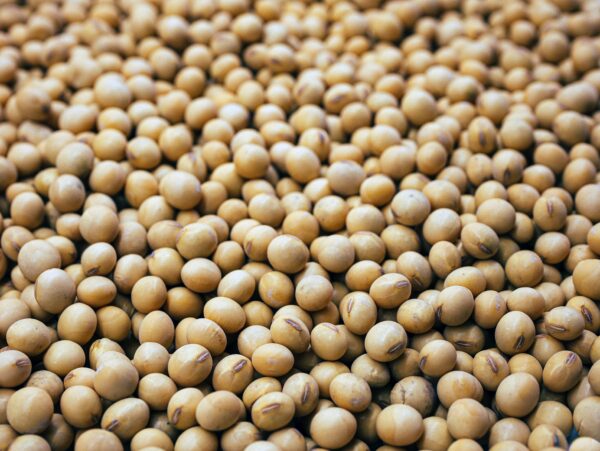
Soybeans
- Common Uses: Cooked dry soybeans under pressure can provide the same texture as meat and can be used in veggie burgers or vegan chicken nuggets.
- Taste/Texture Profile: Soybean grains have a grassy or beany flavor. However, they are rarely eaten on their own, since they don’t really have their own taste and don’t absorb taste like other beans.
- Nutritional Value: Soybeans are a great source of protein. It is among the few plant foods shown to contain every essential amino acid, much like meat. They are also high in fiber, while having low saturated fat, and are cholesterol free.
- Recipe Inspiration:
- https://www.inspiredtaste.net/36554/veggie-burger-recipe/
- https://www.indianhealthyrecipes.com/soya-chunks-curry-meal-maker-curry/
- https://sunpring.com/how-to-make-soya-meat/
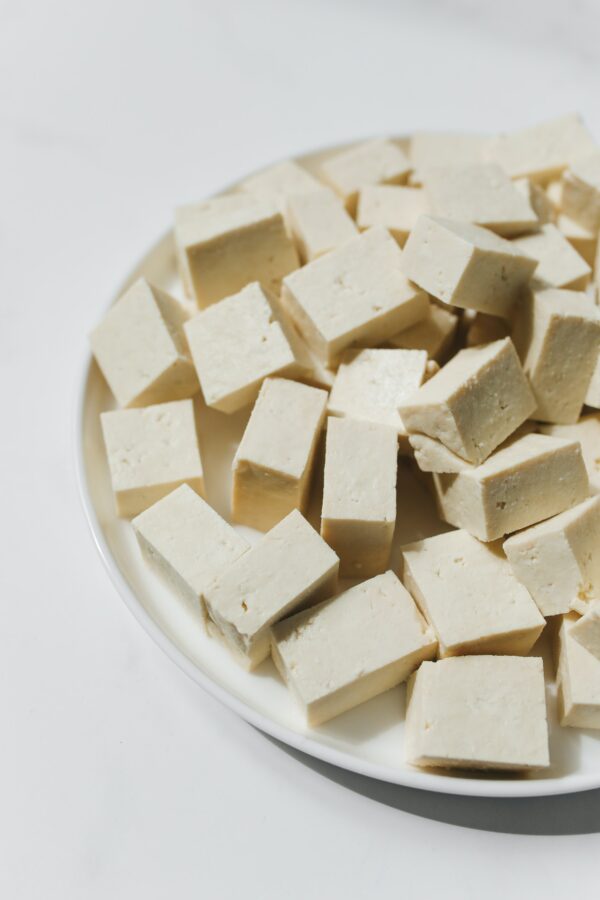
Tofu
- Common Uses: Firm tofu is often sliced or cubed, and can be used more like meat. Soft or silken tofu is more easily broken, crumbled, or blended. Tofu can be added to a wide variety of dishes, such as miso soup, curries, mapo tofu, or salads, for a soft or crunchy texture depending on how it’s cooked.
- Taste/Texture Profile: Before being cooked or seasoned, tofu has a bland and lightly sour taste. However, once it has absorbed the flavors of marinades or sauces, it can go from bland to savory, sweet, soft, or crunchy depending on how you choose to prepare it.
- Nutritional Value: Tofu is best known for its low calories, while being a good source of protein. Apart from protein, tofu is also a good source of fiber, calcium, vitamin A, and zinc.
- Recipe Inspiration:
- https://thefoodietakesflight.com/maple-hoisin-tofu/
- https://choosingchia.com/weeknight-tofu-stir-fry/
- https://ilovevegan.com/teriyaki-peanut-tofu-with-stir-fried-veggies-brown-rice/
- https://ilovevegan.com/garlicky-cashew-broccoli-tofu-stir-fry/

Cauliflower
- Common Uses: Can be used raw, steamed, baked, or fried. Often used as a substitute for dishes such as steak or buffalo wings. One popular variation in recent years has been shredding it into a rice texture and serving it as cauliflower rice.
- Taste/Texture Profile: Raw cauliflower will have a crisp texture with a mild taste. When roasted, it gives off a creamy texture accompanied by a nutty taste.
- Nutritional Value: Cauliflower is a good source of fiber and also contains varying levels of pantothenic acids, as well as vitamins B-6, C, and K. Overall, it is a good low calorie vegetable choice.
- Recipe Inspiration:
- https://veganhuggs.com/cheesy-vegan-cauliflower-casserole/
- https://www.loveandlemons.com/po-boy-sandwich/
- https://cooking.nytimes.com/recipes/1023019-cauliflower-shawarma-with-spicy-tahini
- https://jessicainthekitchen.com/sticky-sesame-cauliflower-wings/
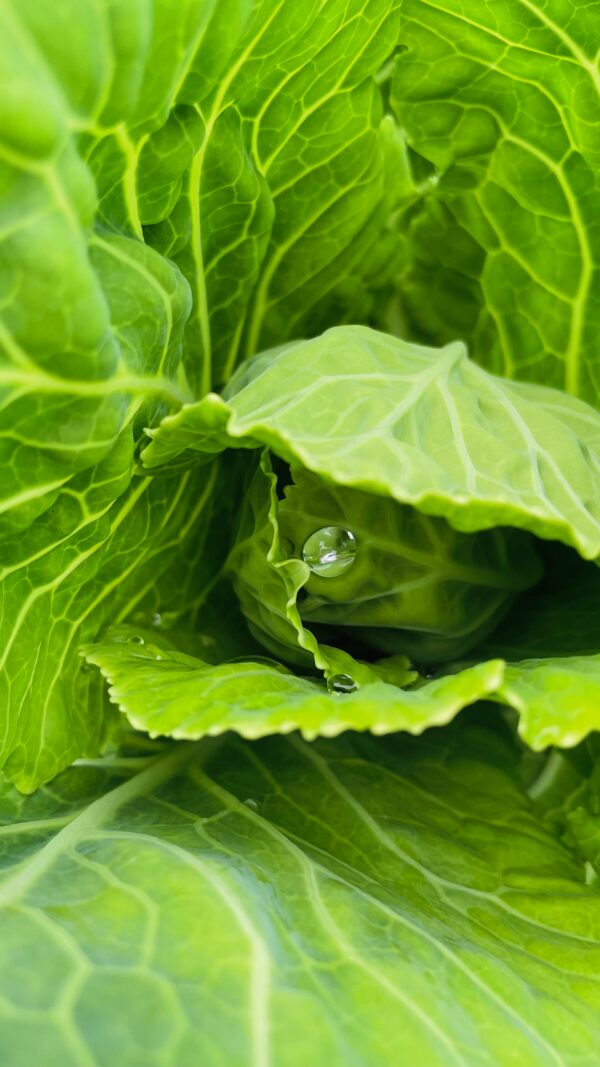
Cabbage
- Common Uses: When used as a meat substitute, cabbage is typically chopped like lettuce into large strips or smaller shreds. Pickled cabbage or kimchi is another common method. Can be used in larger slices to simulate a patty shape, or in chunks for a larger crunchy texture.
- Taste/Texture Profile: Cabbages have a crisp texture and sometimes peppery taste when fresh or raw. However, they become sweeter and soft or wilted when cooked.
- Nutritional Value: Packed with a lot of fiber and rich in antioxidants, such as polyphenols, cabbages are a good source to help reduce inflammation. They are also rich in vitamin A and B6, and are also a good source for iron and riboflavin.
- Recipe Inspiration:
- https://healthiersteps.com/recipe/vegan-southern-fried-cabbage/
- https://www.thecuriouschickpea.com/vegan-cabbage-potato-and-chickpea-sheet-pan-dinner/
- https://thewimpyvegetarian.com/garlicky-roasted-cabbage-steaks/
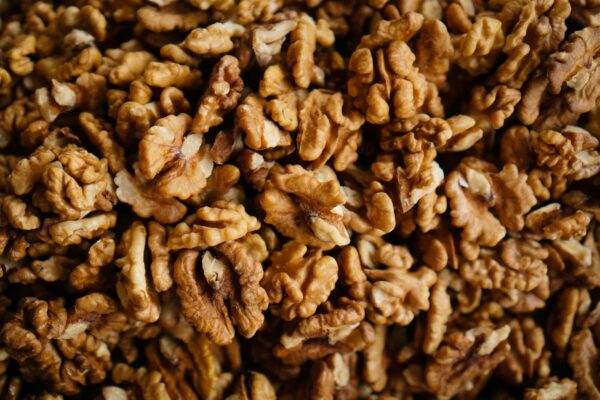
Walnuts
- Common Uses: Used whole or chopped to add texture to dishes. Grounding soaked walnuts, with the right spices, can be a good addition to tacos, pastas, and vegan pizzas to simulate a ground beef texture.
- Taste/Texture Profile: Their texture has the right balance between crunchy and creamy. When it comes to taste, walnuts will have a distinct nutty and bitter taste, the latter coming from its skin.
- Nutritional Value: They’re known for being a richer source of both omega-3 and antioxidants than most other foods. Walnuts are a great help in keeping the brain healthy, while also preventing heart disease. Additionally, walnuts contain fat and calories, but they don’t increase the risk of obesity.
- Recipe Inspiration:
- https://makeitdairyfree.com/vegan-walnut-taco-meat/
- https://themodernproper.com/walnut-and-lentil-bolognese
- https://simple-veganista.com/walnut-meat/
The most popular types of vegan meat substitutes are:

Veggie Burgers & Patties
Image via Impossible Foods
- Common Types: Tofu, soybeans, legumes, and mushrooms are some good ingredients when making a veggie burger or patty.
- Taste/Texture Profile: Veggie burgers have the similar crunchy outer feel to regular patties. The only difference is that the texture on the inside is more solid than a bean or baked potato. You can make various flavors with different levels of spice to your liking!
- Nutritional Value: As one example of many, a single serving of a Bocaburger veggie patty contains 230 calories, 8g total fat, 2.5g saturated fat, 10mg cholesterol, 14g in total carbs, 28g protein, and 9g fiber. (BOCA EXTRA LARGE ALL AMERICAN VEGGIE BURGERS)
- DIY Recipe: https://www.youtube.com/watch?v=l75ixsh-wjI
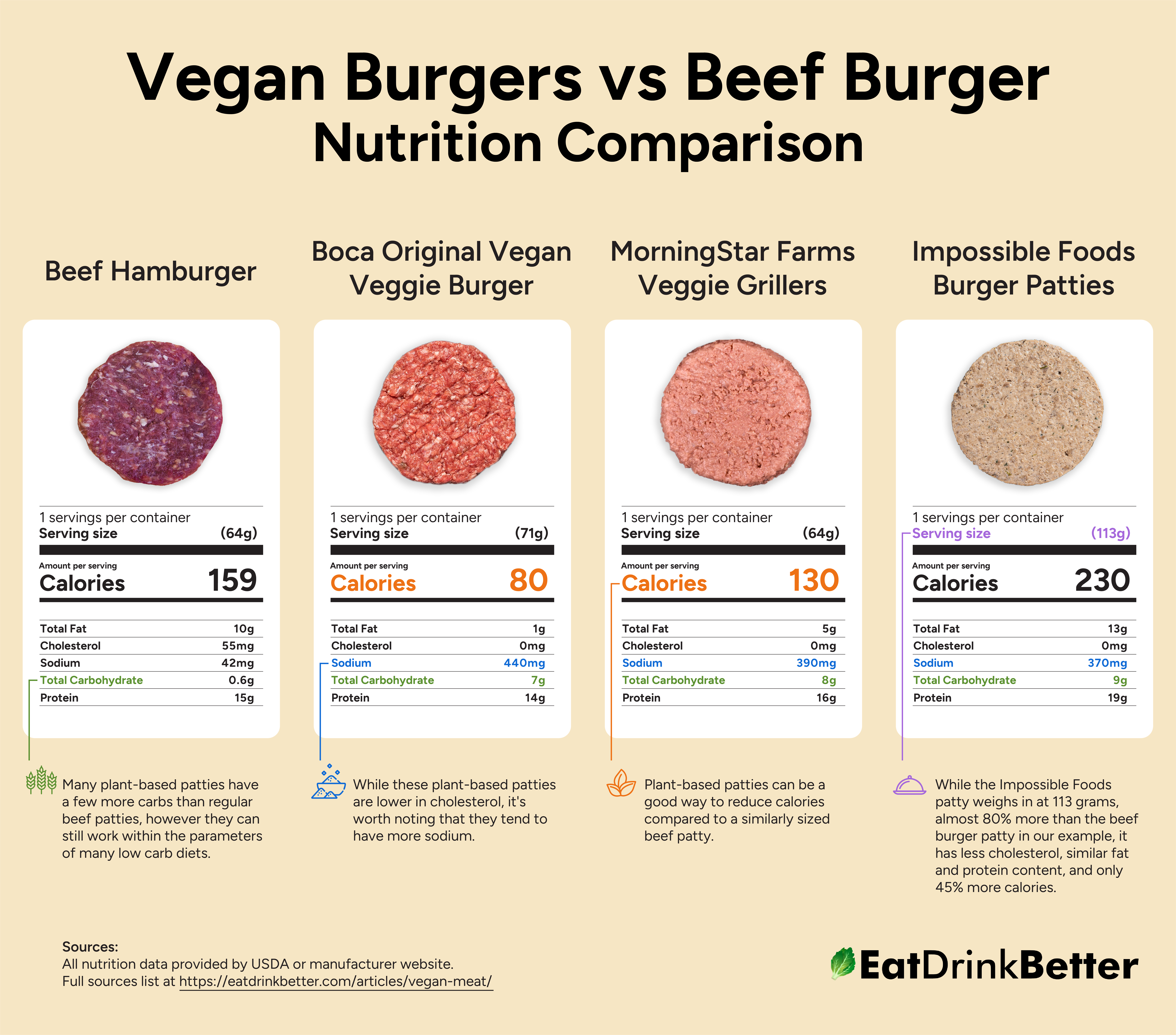
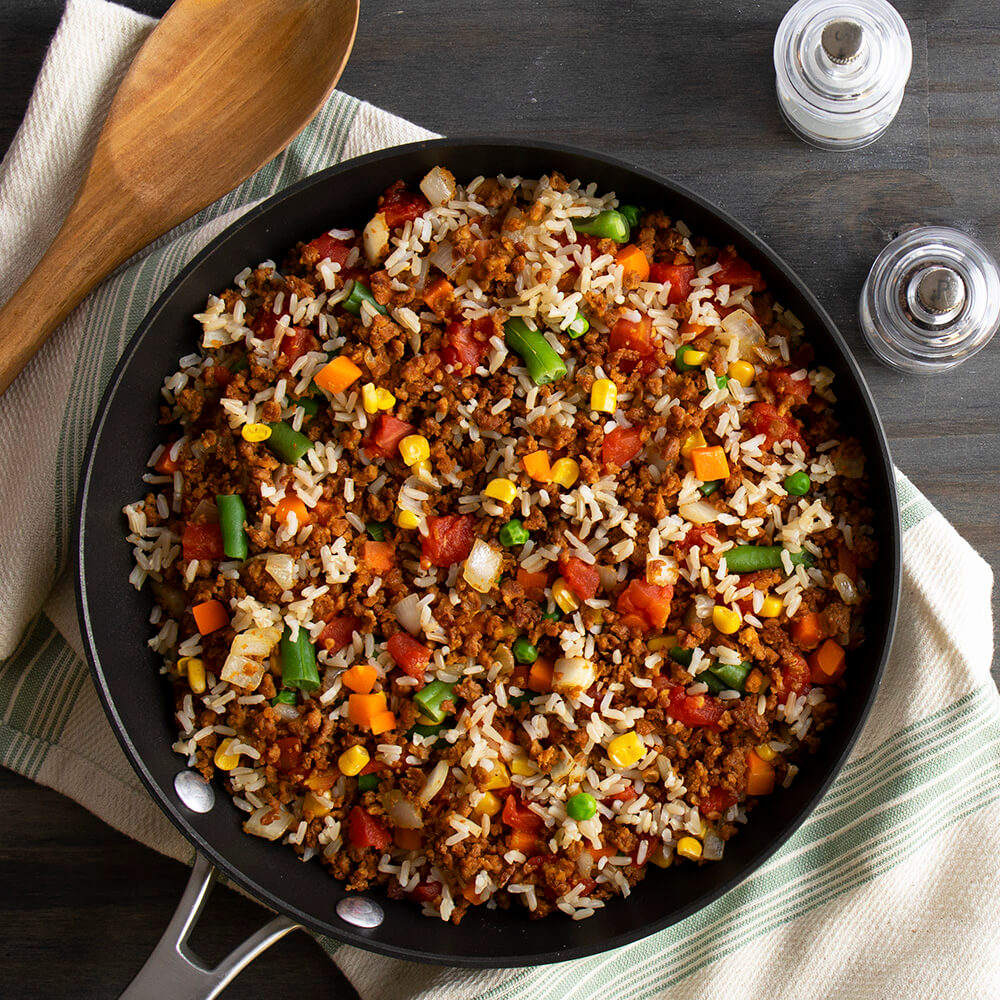
Crumbles
Image via Gardein
- Common Types: The most common ingredient of veggie crumbles is soy flour that’s been mixed with water and other flavoring, which is then turned into chunks.
- Taste/Texture Profile: With soy protein as the key ingredient, they are known as Texturized Vegetable Protein or TVP. TVP is known to be tasteless alone, but can work well by adding a meaty texture to other dishes.
- Nutritional Value: A half cup (27 grams) of TVP has around 93 calories, 8.7 grams of carbs, 14 grams of protein, 0.3 grams of fat, 0.9 grams of fiber, and 1.2 mg of iron which is about 25% of RDI in men and 11% in women.
- DIY Recipe: https://www.youtube.com/watch?v=ZBvn1F32aY8
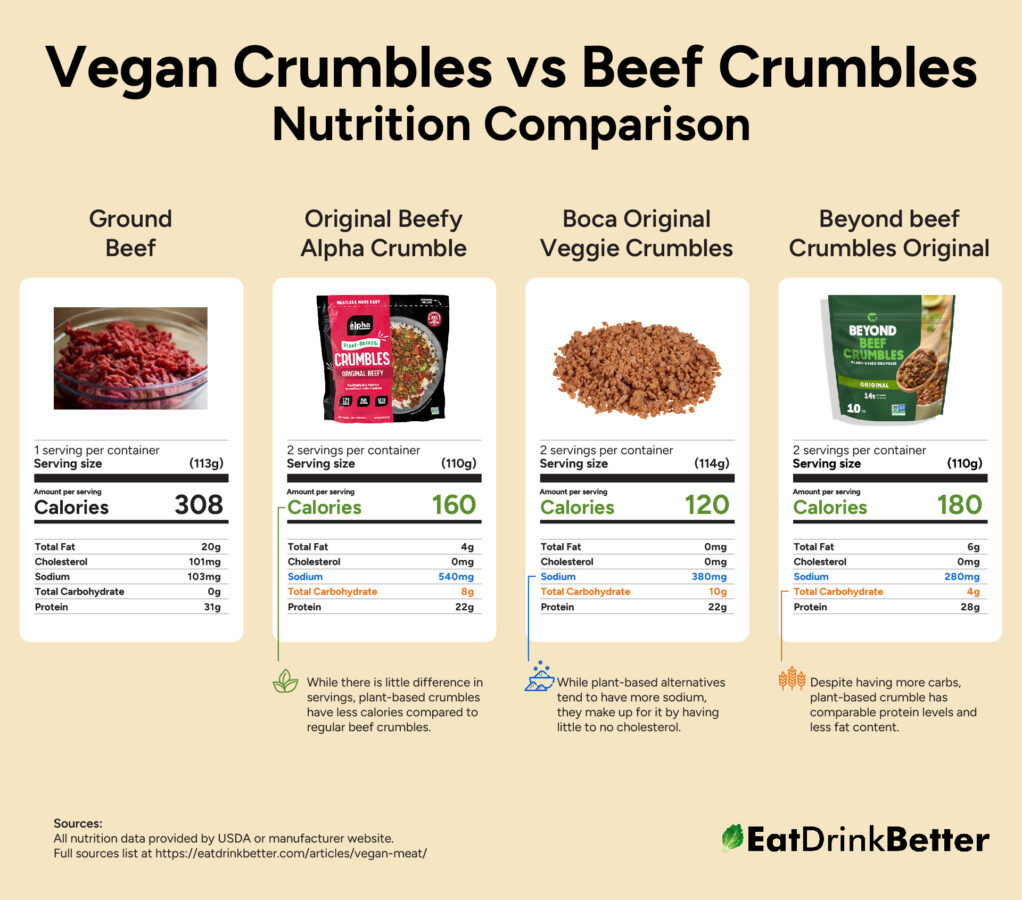

Veggie Chicken Nuggets & Strips
Image via Morning Star
- Common Types: Veggie chicken nuggets & strips are mostly made from essential wheat, gluten, and tofu.
- Taste/Texture Profile: They usually have a taste similar to dark meat. The texture can be somewhat greasy and spongy compared to the usual crunchiness of regular nuggets.
- Nutritional Value: Impossible Foods veggie chicken nuggets have 25% less sodium and 40% less saturated fat compared to animal-based nuggets. Nutritional value may vary between products, so it’s best to check them and find what suits your preference.
- DIY Recipe: https://www.youtube.com/watch?v=KNyJelOckec
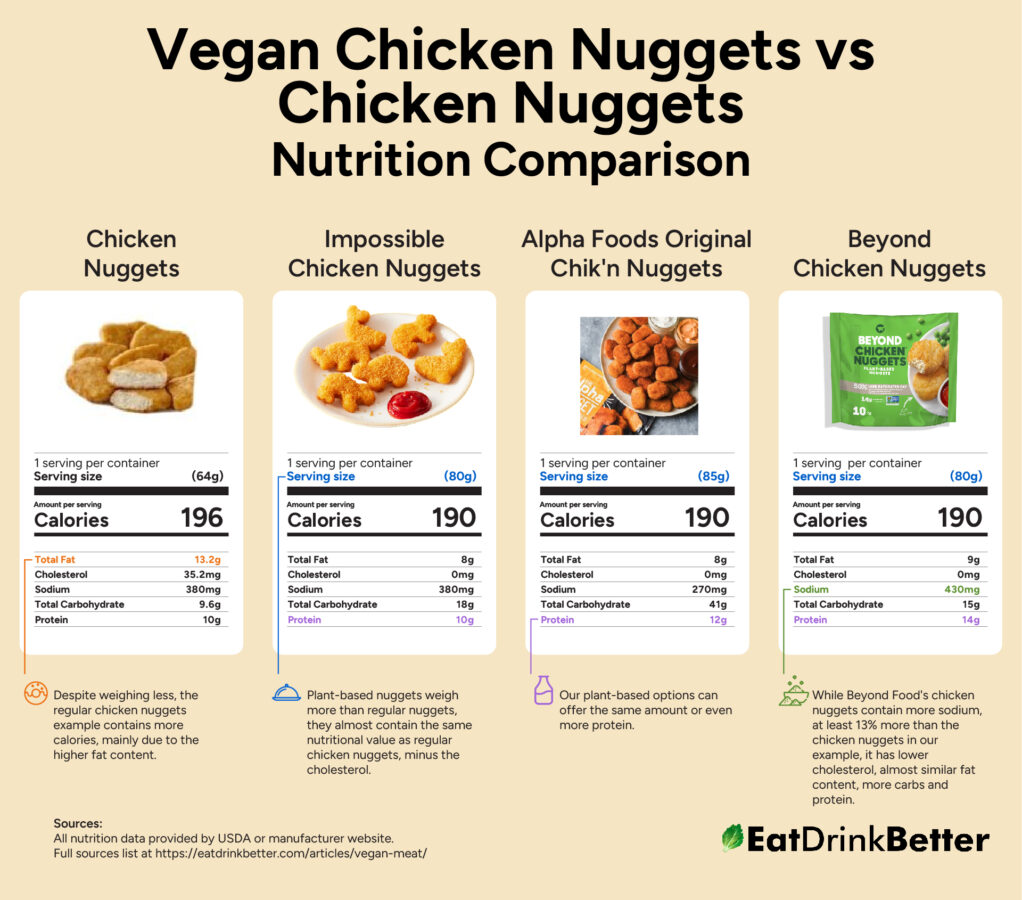

Veggie Sausages & Hot Dogs
Image via Field Roast
- Common Types: Soy or pea protein is usually the main component of veggie sausages. Other sources include vital wheat gluten and tofu.
- Taste/Texture Profile: Vegan sausages are made from plant-based materials, but have the same flavor and texture as pork sausages.
- Nutritional Value: 100 grams of veggie sausage will contain about 15g of total fat, 5.8g saturated fat, 620mg of sodium, 12g in total carbs, 5g in dietary fiber, 1g in total sugar, and 10g of protein.
- DIY Recipe: https://www.youtube.com/watch?v=KNyJelOckec
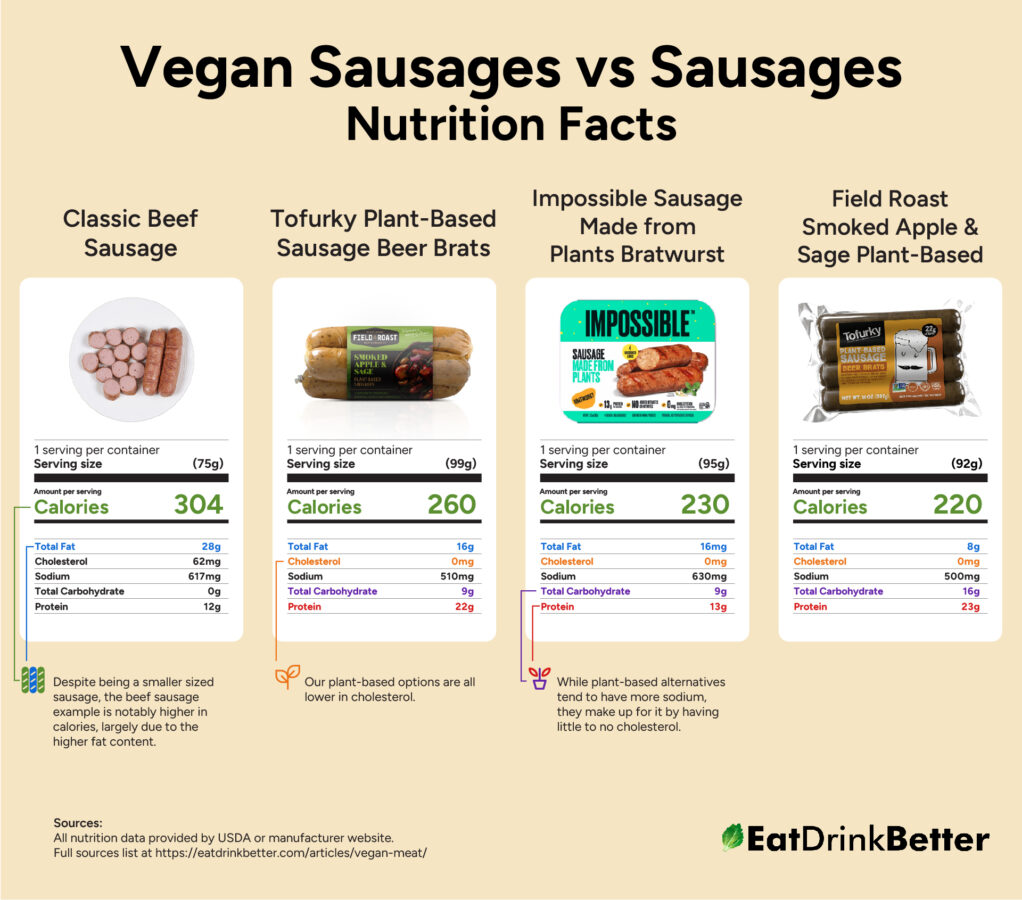
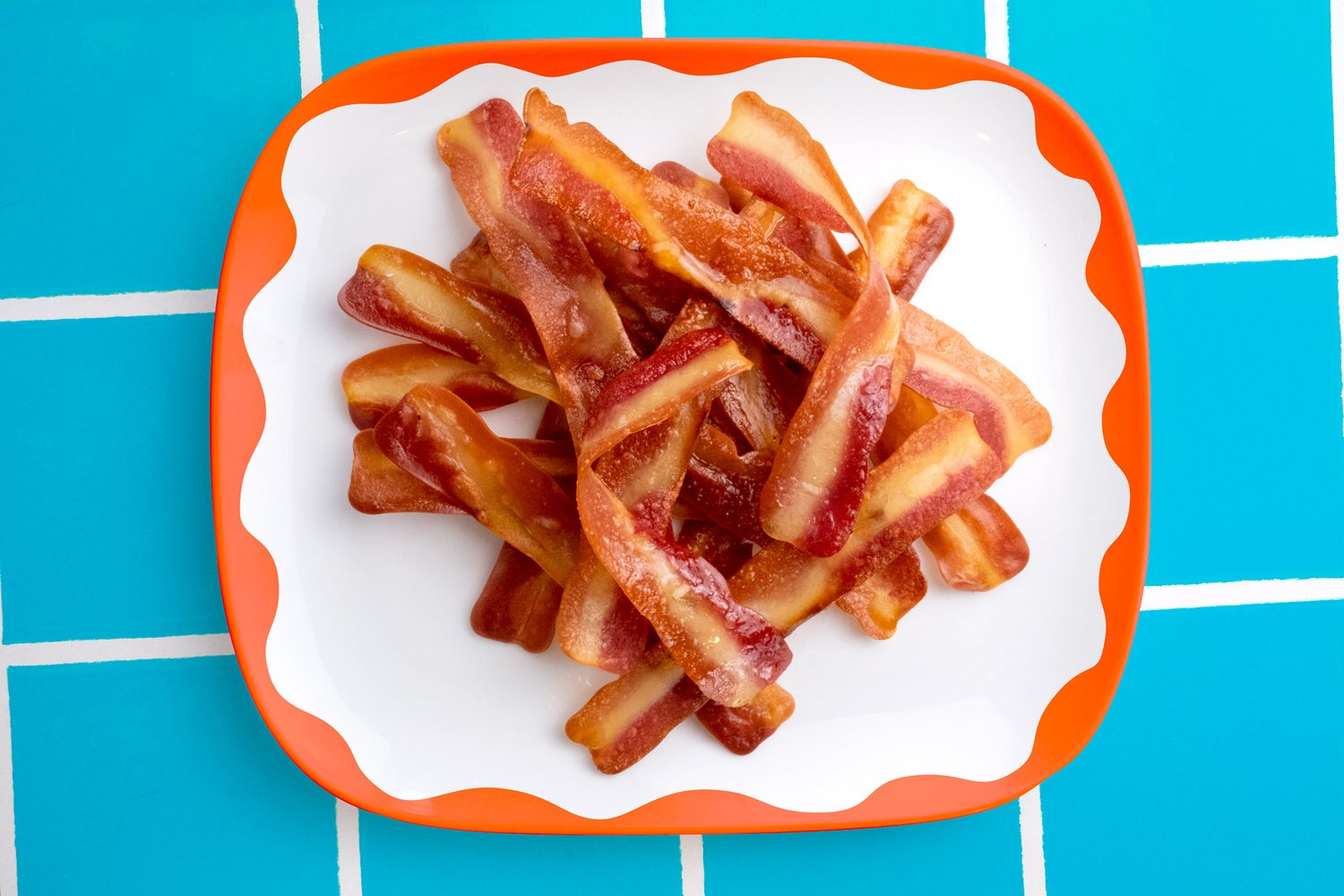
Veggie Bacon
Image via Hooray Foods
- Common Types: The most common ingredient used to create veggie bacon is tempeh or tofu, which are cut into thin slices to replicate the look of regular bacon.
- Taste/Texture Profile: Since its key ingredient is tofu, it will have a distinct bland and sour taste, but by marinating it in various seasonings/flavorings of your choosing, it will absorb them and start to have a flavor of its own. Texture wise, it feels soft, but once cooked, it will have that crunchy feel we all associate with regular bacon.
- Nutritional Value: 25 grams of veggie bacon will have around 4.2g total fat, 0.7g saturated fat, 265 mg sodium, 2g in total carbs, and 4g of protein.
- DIY Recipe: https://www.youtube.com/watch?v=ZtZtI5ot33E
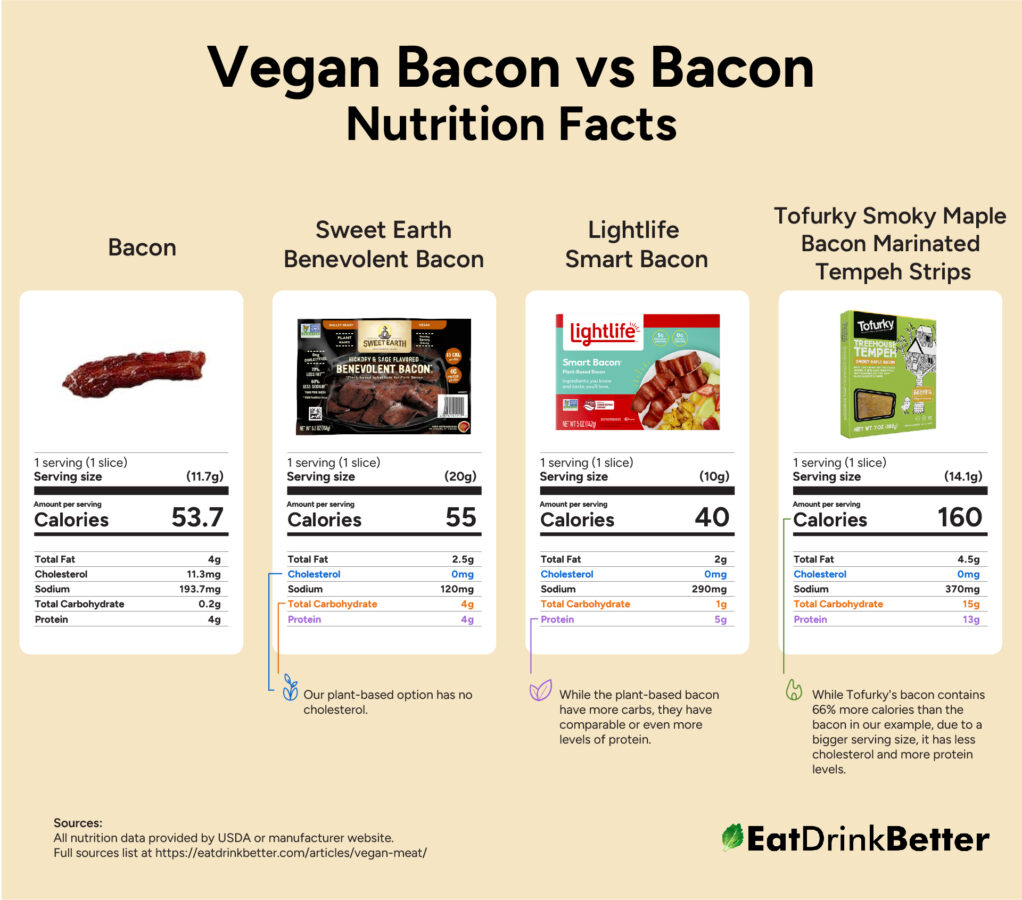
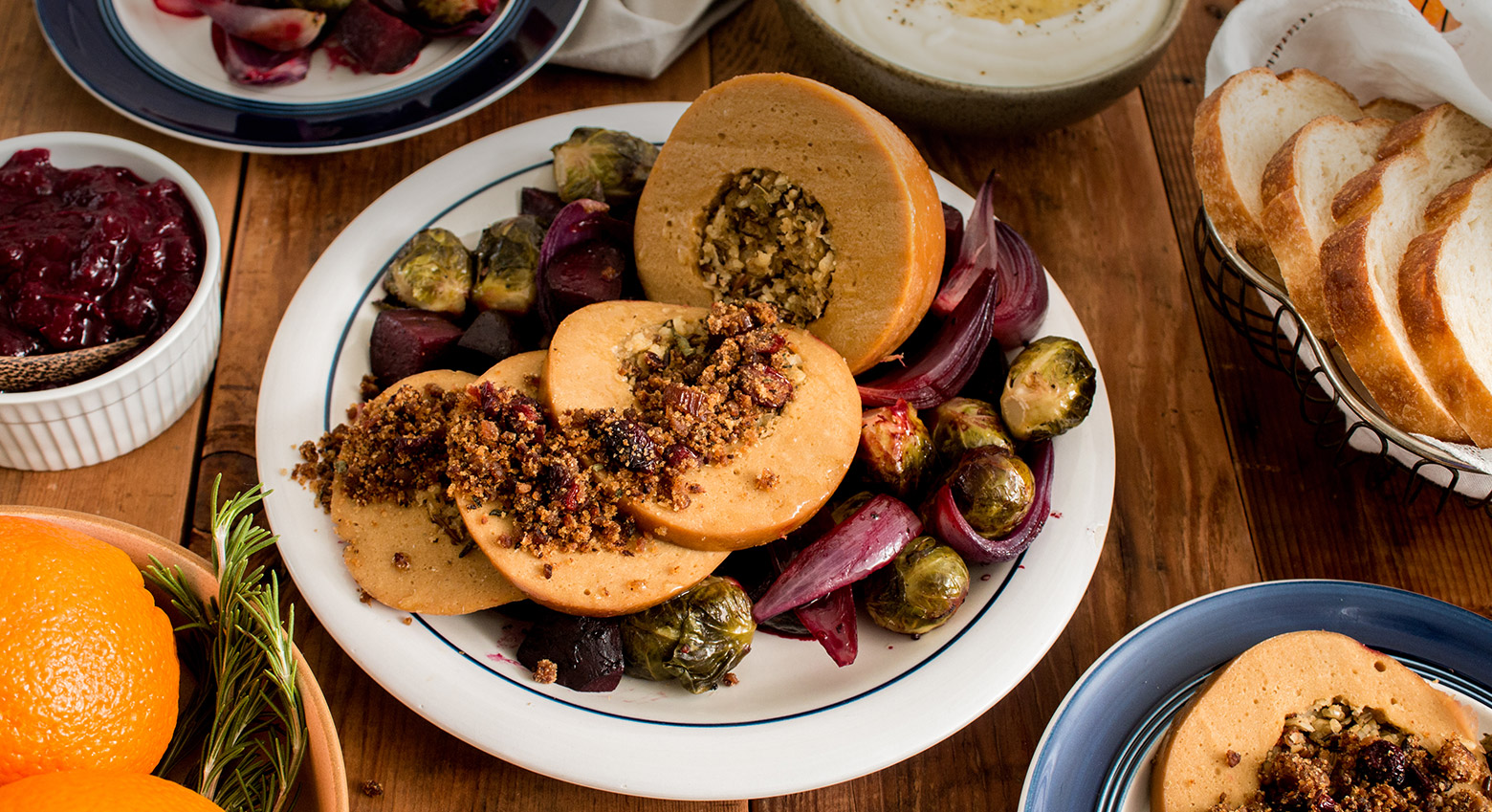
Roasts
Image via Tofurky
- Common Types: Mushrooms, nuts, tofu, seitan, and vital wheat gluten are some of the most common you’ll see used for vegan roasts. Its popularity can be attributed to its meaty texture.
- Taste/Texture Profile: It has a meaty texture and a taste that closely resembles meat thanks to its form.
- Nutritional Value: A 147 gram serving of vegan roasts will have at least 300g of calories, 10g in fat, 670mg of sodium, 19g carbs, 2g in sugar, and 33g protein.
- DIY Recipe: https://www.youtube.com/watch?v=oWUaXKB2V3Q
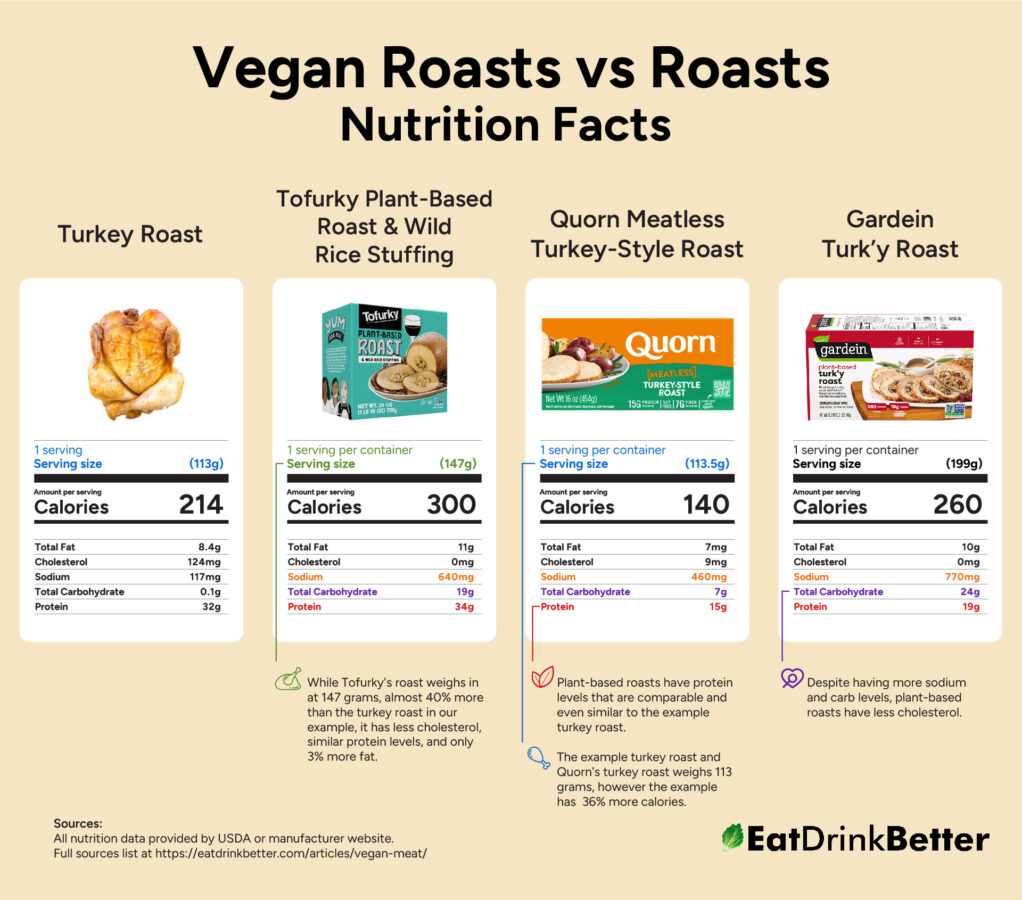
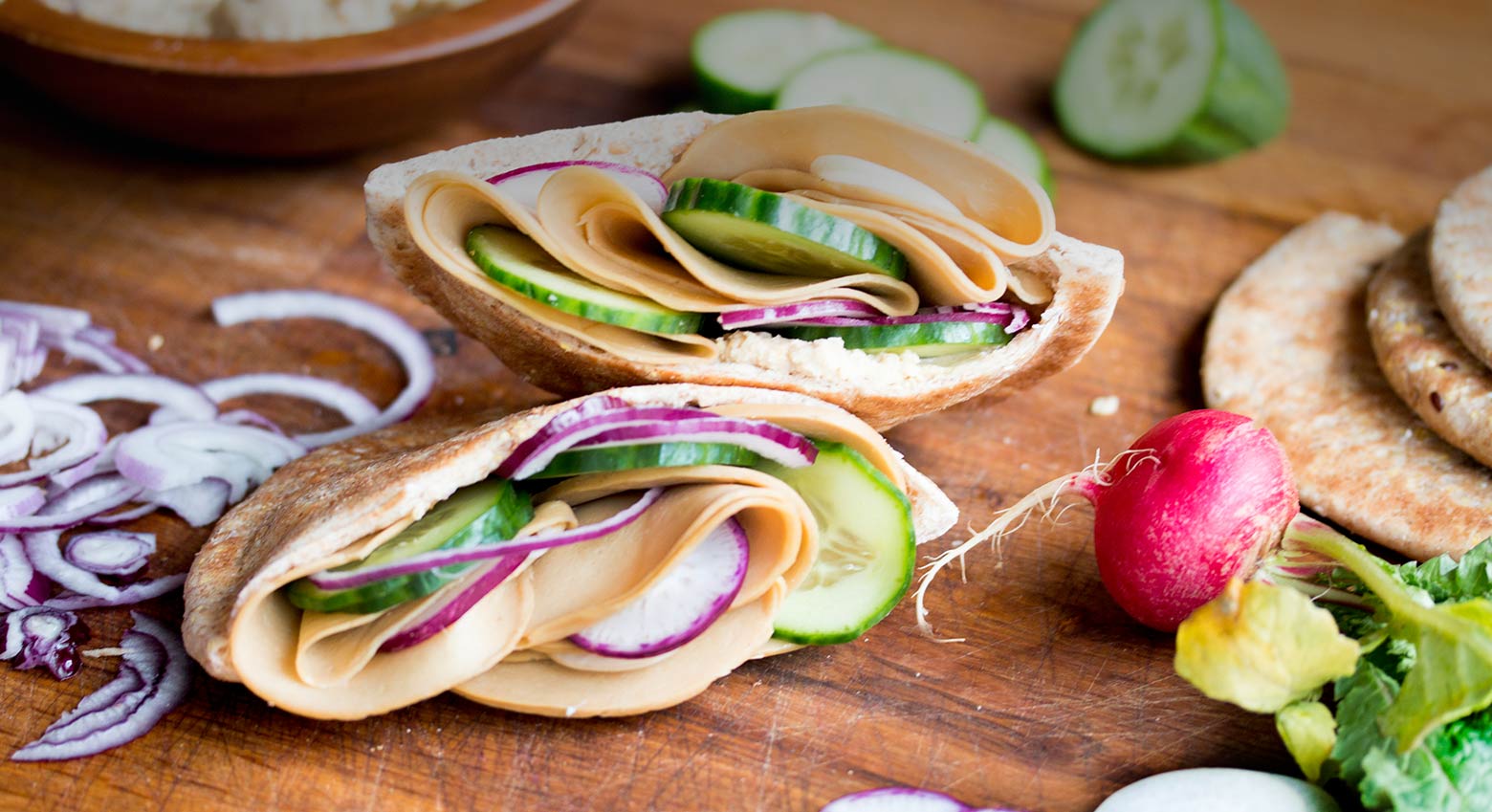
Deli Slices
Image via Tofurky
- Common Types: Soy, chickpeas, vital wheat gluten, pea protein flour, or beans are the most common sources used to make vegan deli meats. Many vegan deli meats try to replicate a similar meat version, such as ham or turkey taste and textures.
- Taste/Texture Profile: Some vegan deli slices have a flavor similar to actual meat, while other vegan deli slices have a tofu or vegetable flavoring.
- Nutritional Value: Iron, folate, and fiber are all found in adequate amounts in vegan deli meats. Secondly, compared to regular deli meats, this plant-based meat has less saturated fat.
- DIY Recipe: https://www.youtube.com/watch?v=hIUOHvS7Kso
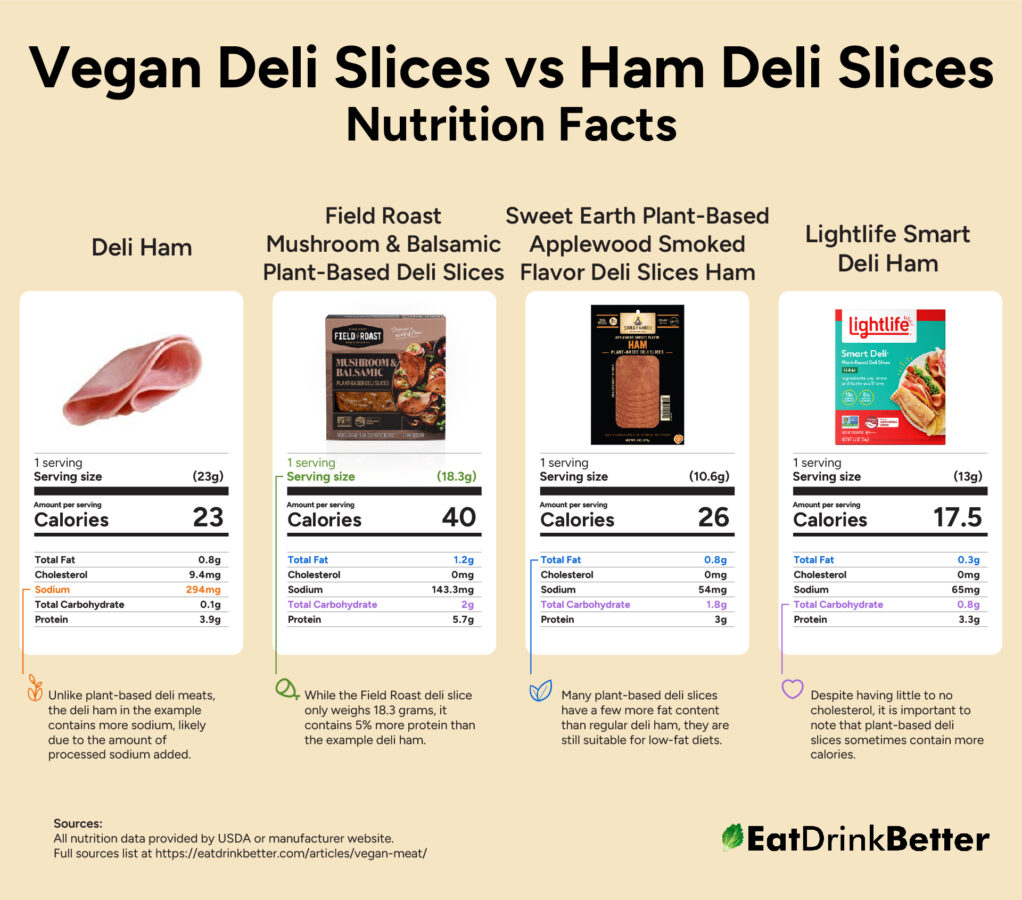
Popular Vegan Meat Brands
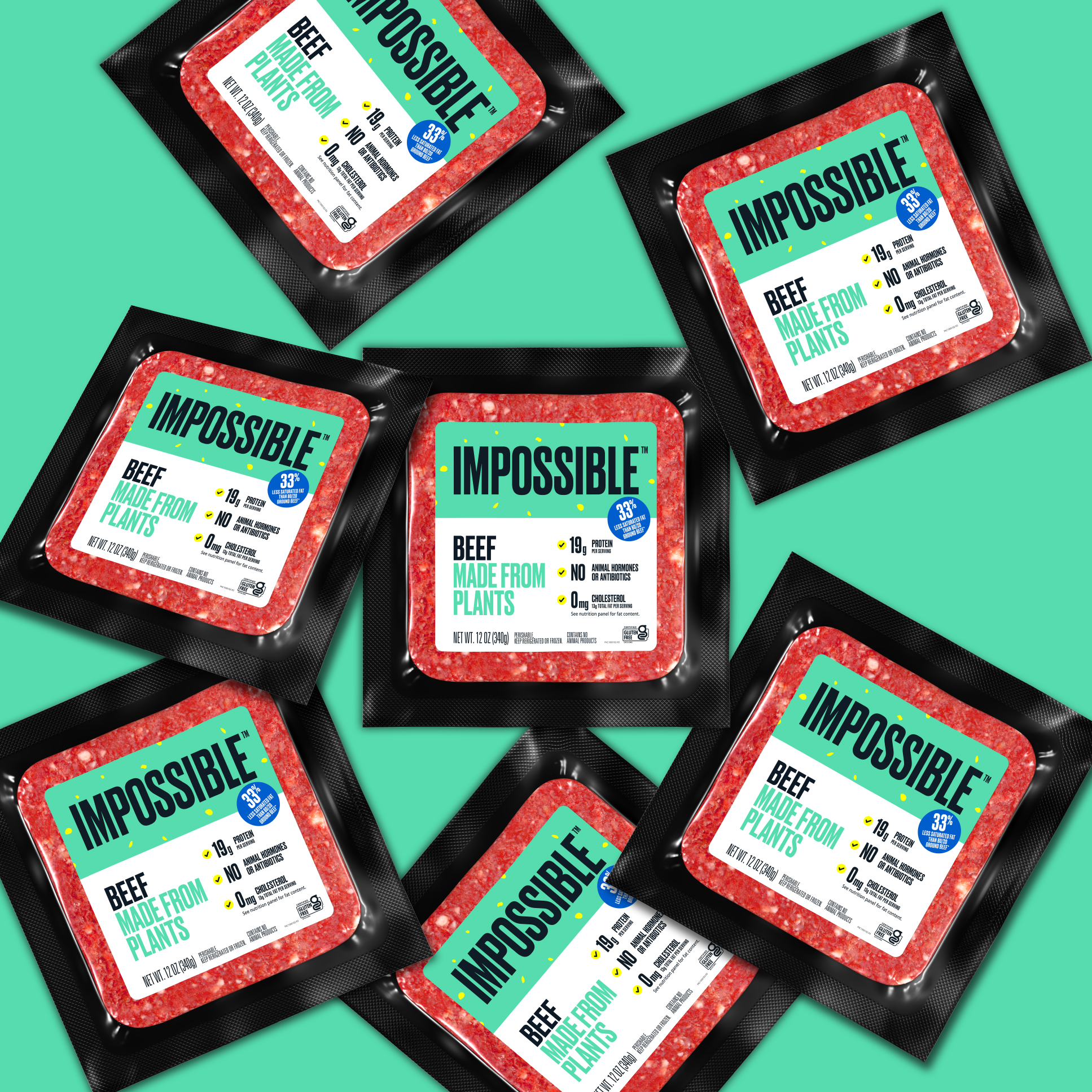
Impossible Foods
Image via Impossible Foods
- Product Types: Meat substitutes, such as beef, sausage, chicken, pork, and meatballs. The company is best known for their signature product, the Impossible Burger.
- What We Like: Their vegan beef, sausage, and sausage links are Halal and Kosher certified.
- Website: https://impossiblefoods.com/
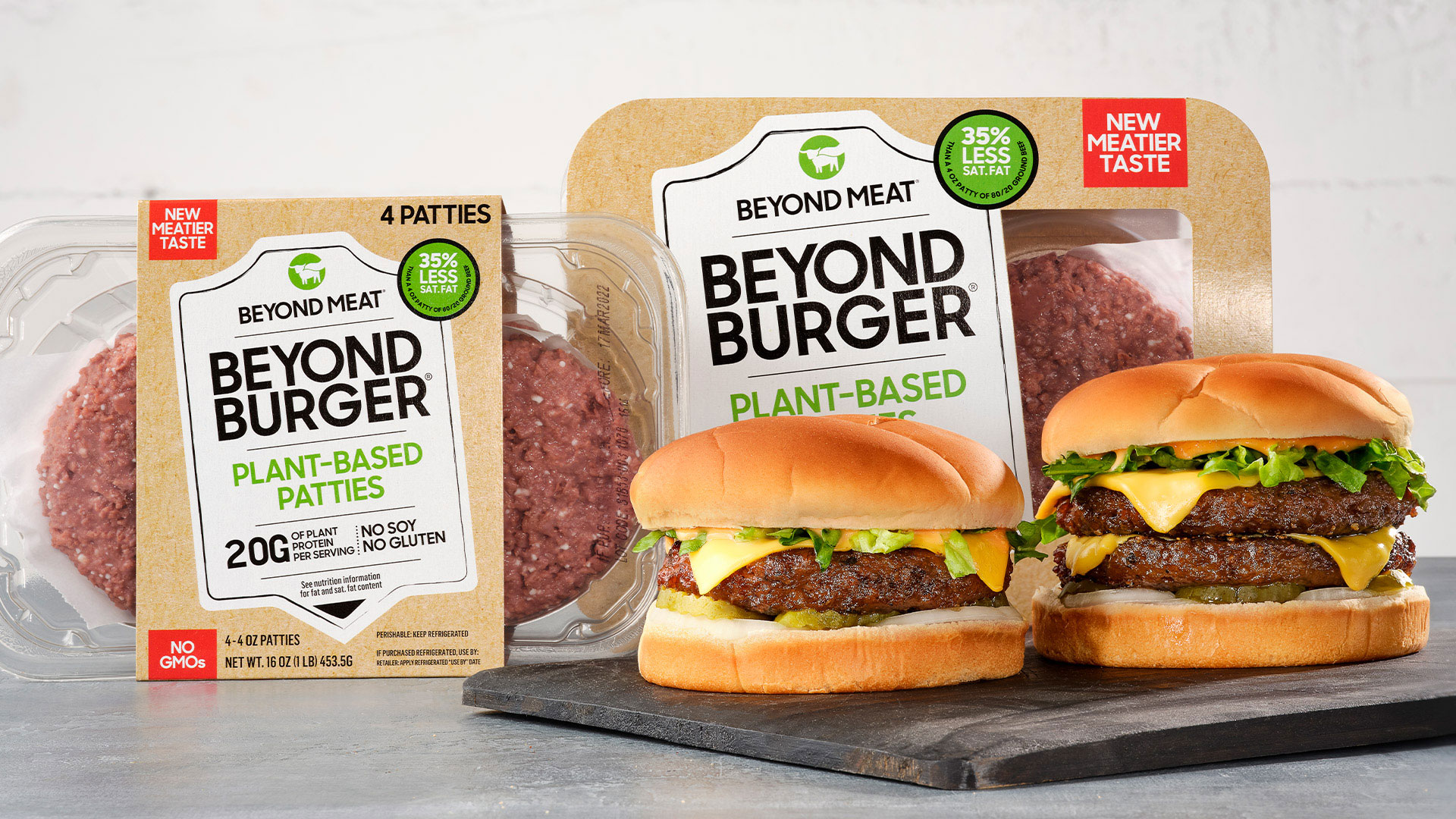
Beyond Meat
Image via Beyond Meat
- Product Types: Vegan chicken strips, burger patties, sausages, meatballs, and jerkies.
- What We Like: They’re known for the absence of GMOs and cholesterol from their products. Received the non-GMO verification from The Non-GMO Project.
- Website: https://www.beyondmeat.com/en-US/
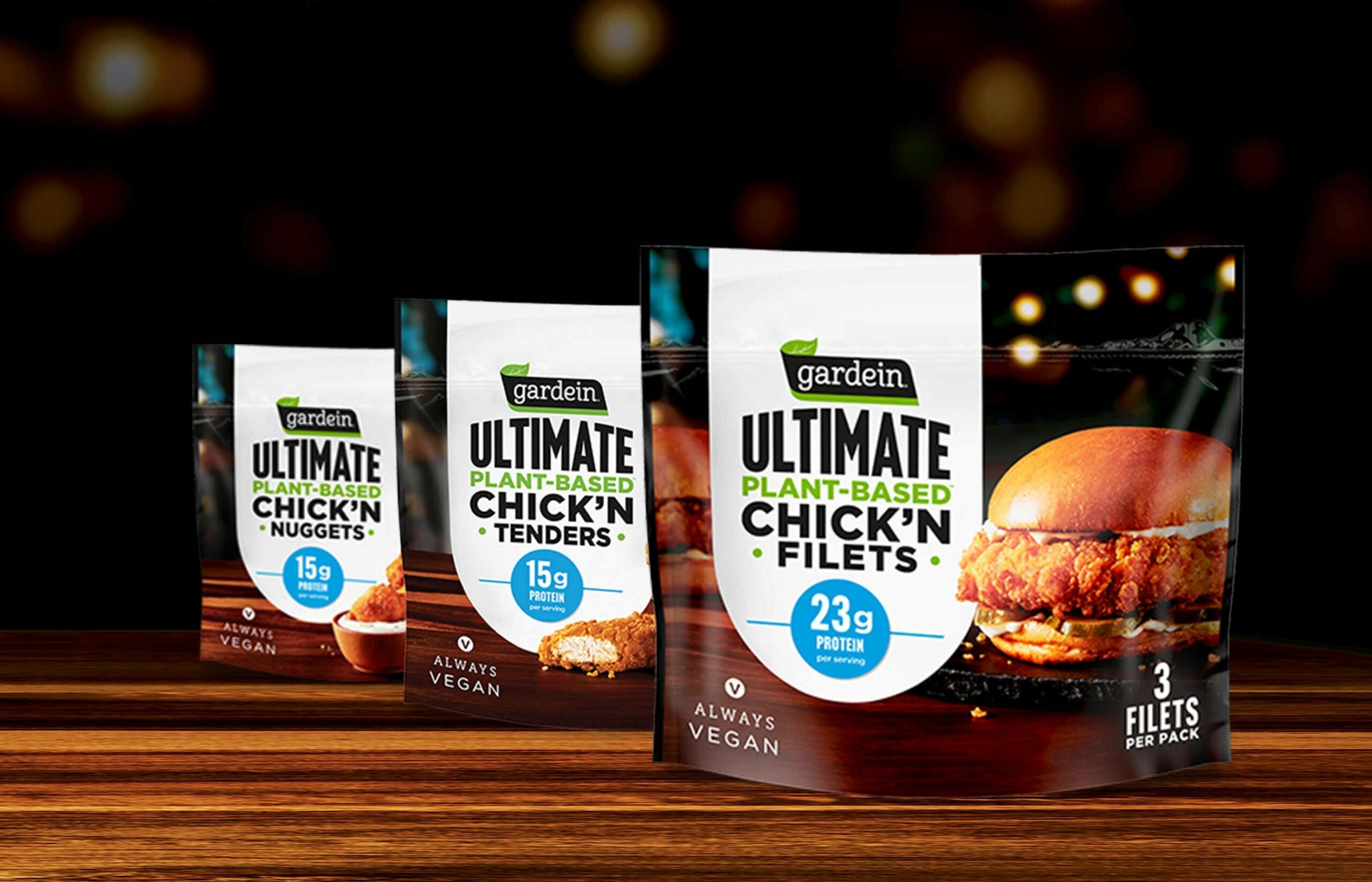
Gardein
Image via Gardein
- Product Types: Plant-based burgers, chicken, meatballs, and fish.
- What We Like: Given the Kosher certification by the Kosher Services of America.
- Website: https://www.gardein.com/
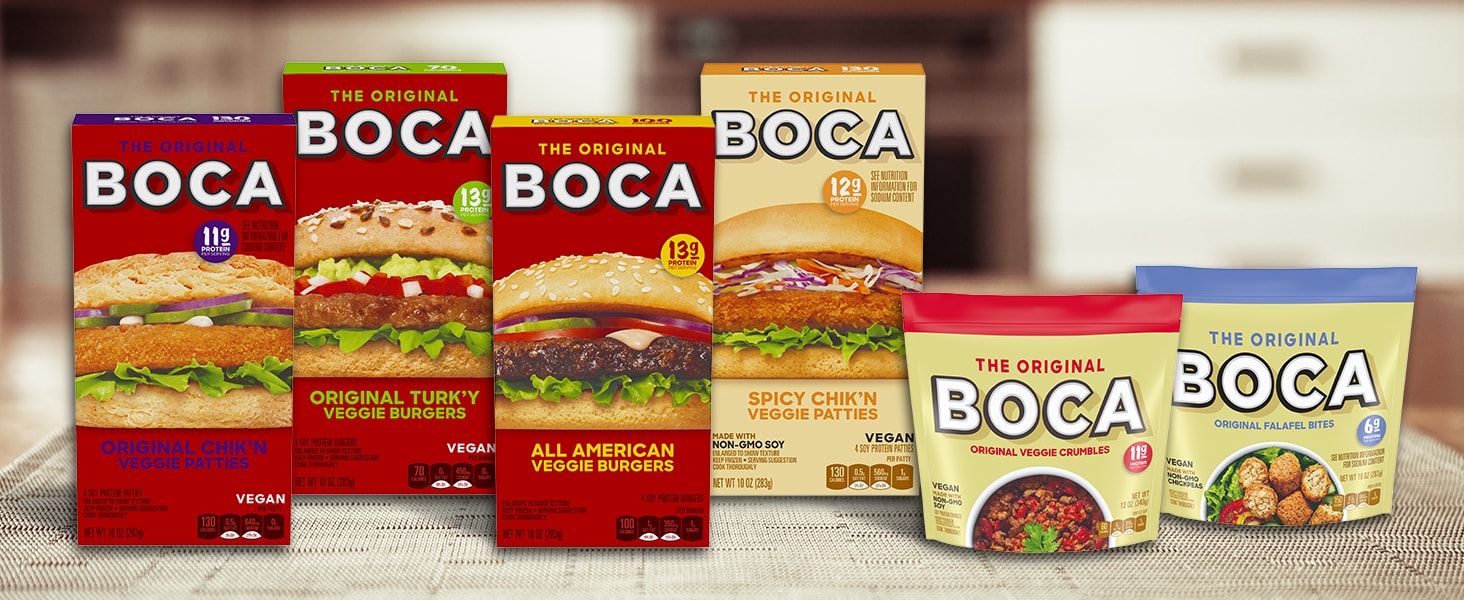
Boca
Image via Boca Burger
- Product Types: Veggie burgers, plant-based chicken nuggets, and veggie crumbles.
- What We Like: Cruelty-free, as they don’t test their products on animals or ask others to test on their behalf.
- Website: https://www.bocaburger.com/

Morning Star
Image via Morning Star
- Product Types: Vegan burgers, sausages, and chicken.
- What We Like: They were certified by the Kosher Services of America in 2020.
- Website: https://www.morningstarfarms.com/en_US/home.html
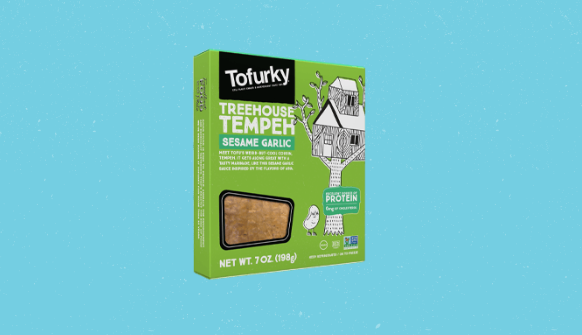
Tofurky
Image via Tofurky
- Product Types: Vegan roasts, deli slices, sausages, and jerky.
- What We Like: BRCGS Food Safety Certified, member of the Plant Based Foods Association, certified by the Kosher Services of America.
- Website: https://tofurky.com/
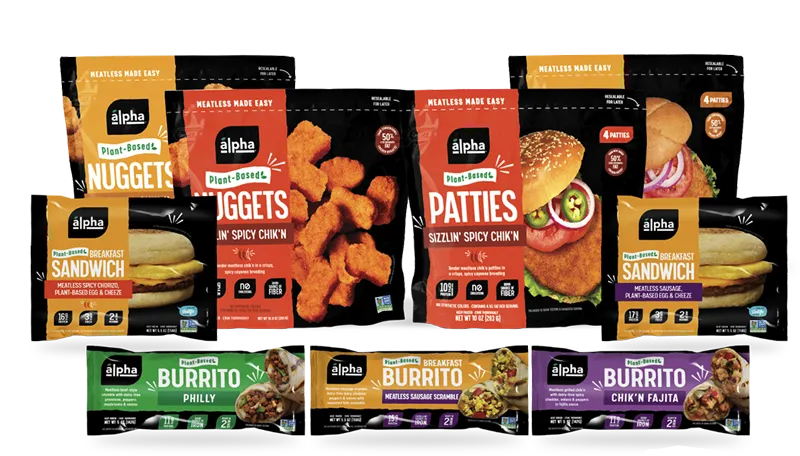
Alpha Foods
Image via Alpha Foods
- Product Types: Vegan burritos, all-day burrito and breakfast burrito. Apart from burritos, they also have sandwiches, patties, meatballs, and chicken nuggets.
- What We Like: All their products are officially vegan certified with the American Vegetarian Association (AVA).
- Website: https://eatalphafoods.com/
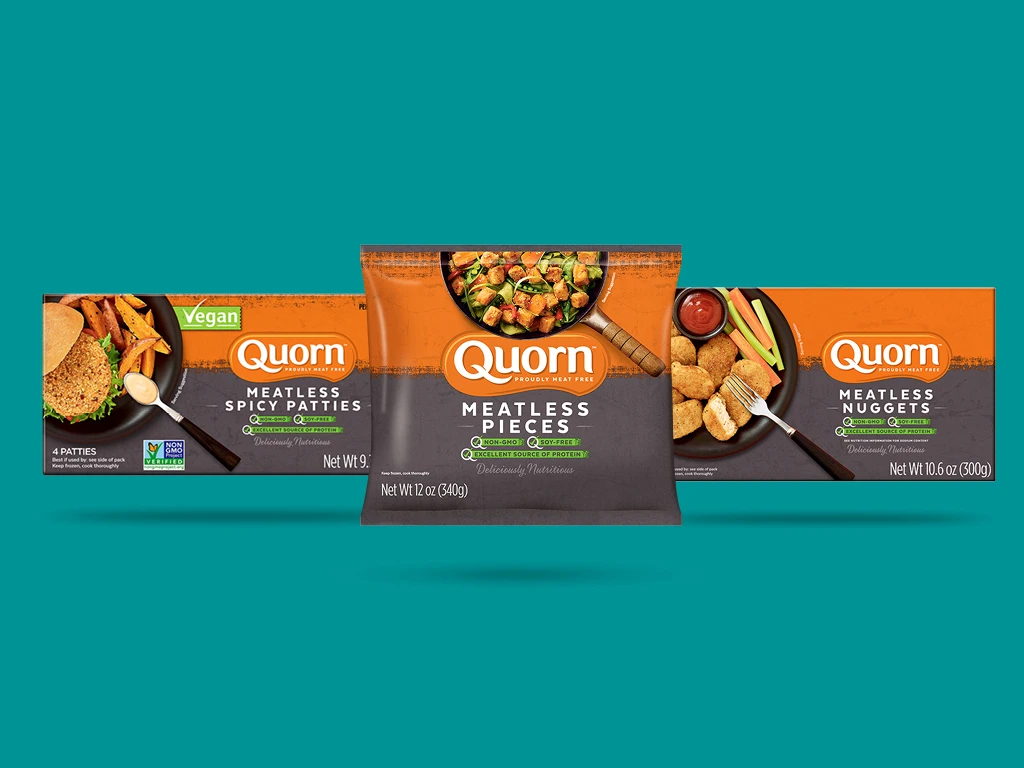
Quorn
Image via Quorn
- Product Types: Vegan chicken, filets, chicken nuggets, fishless fingers, sandwich fillers, fajita strips and sausages.
- What We Like: Joined WRAP’s Courtauld 2025 initiative to reduce waste and emission by one-fifth.
- Website: https://www.quorn.us/
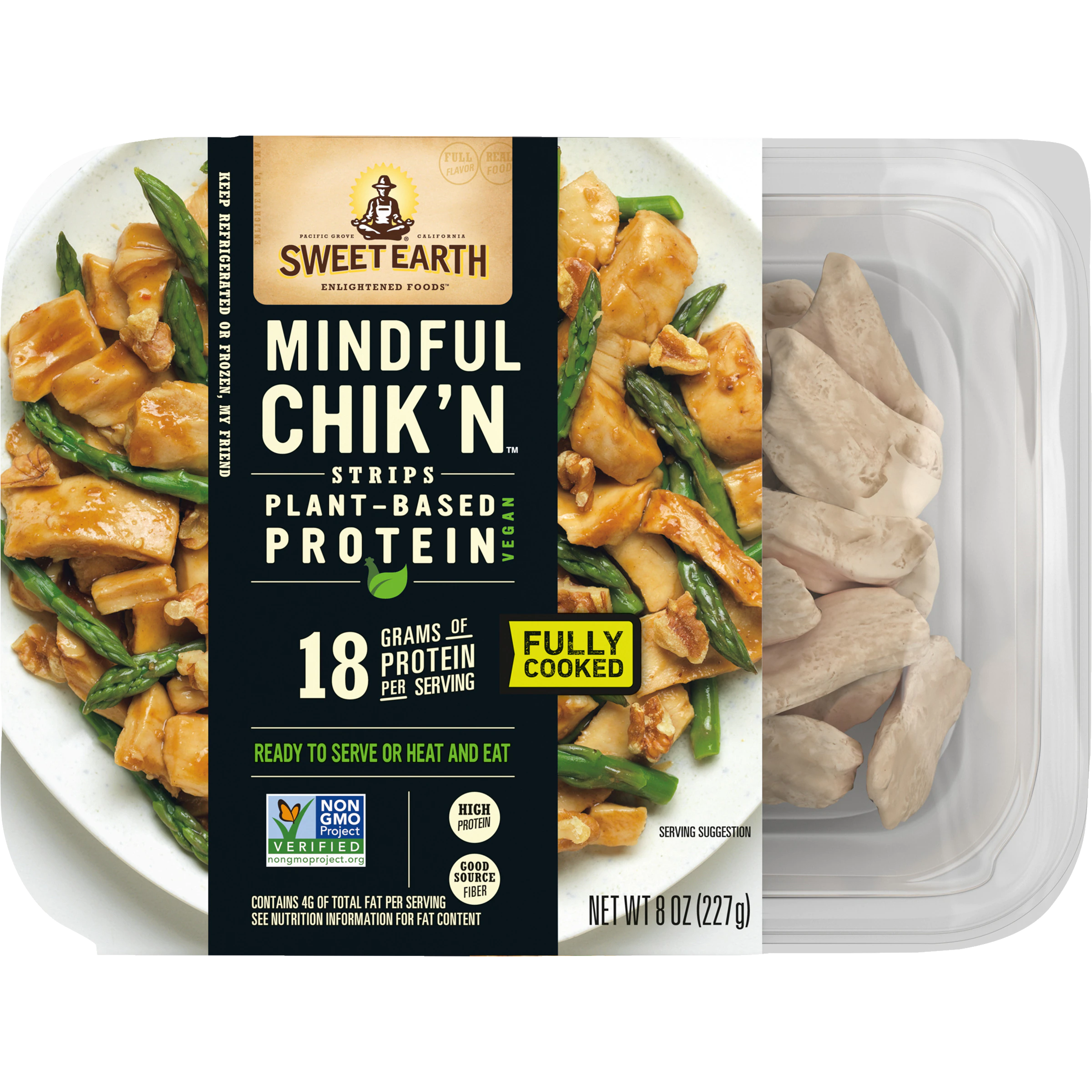
Sweet Earth
Image via Sweet Earth
- Product Types: Plant-based bacon, burritos, pizza, plant-based seitan, plant-based chicken, and plant-based deli slices.
- What We Like: American Masters of Taste. Gold Medal for Superior Taste: Artisan Bowls, Benevolent Bacon, Burritos, Breakfast Sandwiches.
- Website: https://www.goodnes.com/sweet-earth/
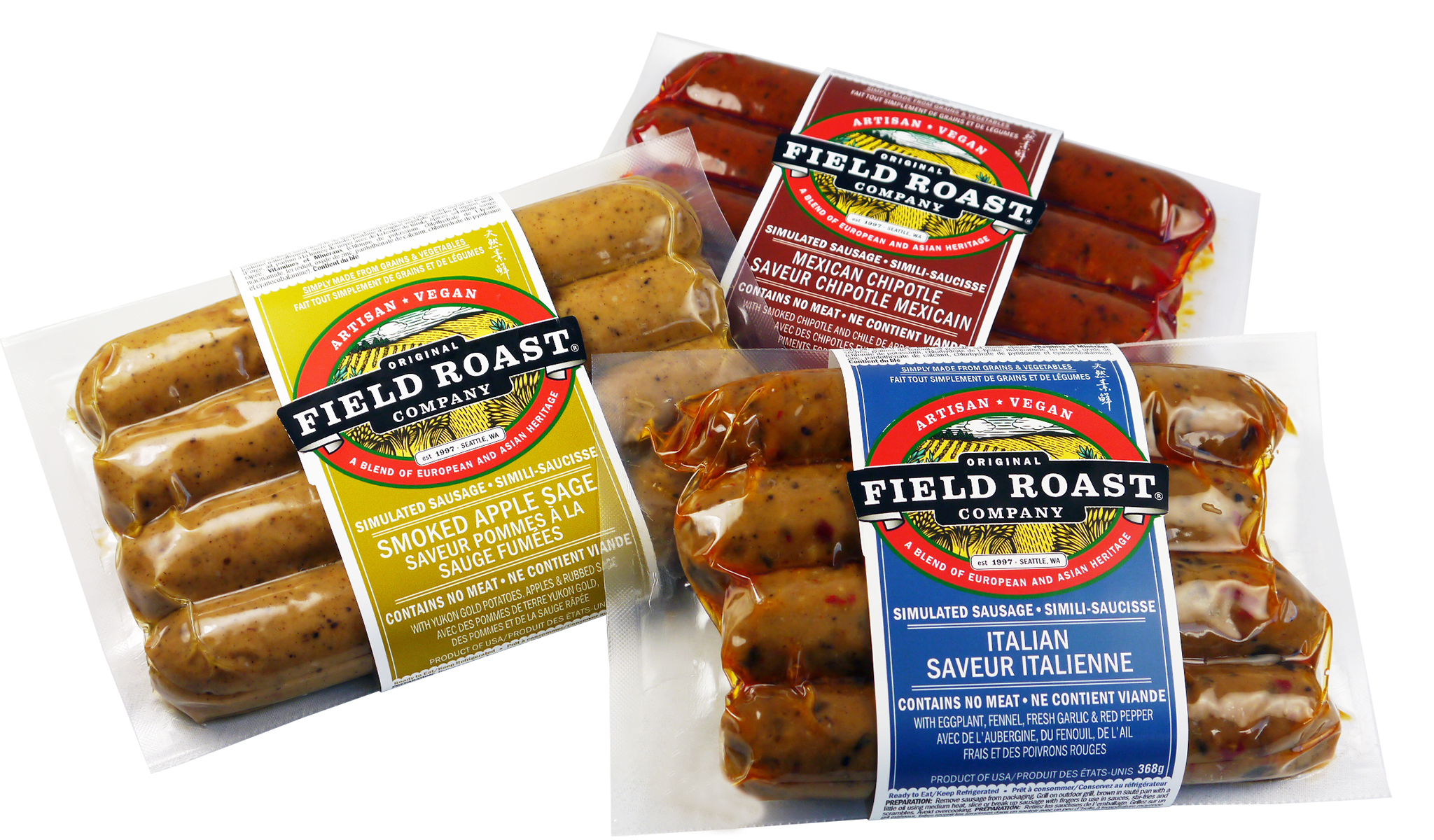
Field Roast
Image via Field Roast
- Product Types: Meat substitutes, such as sausages, burgers, and deli slices. They also provide Chao Creamery, a line of vegan alternatives to regular cheese.
- What We Like: Part of the Greenleaf Foods family and are investing in Green-e and American Carbon Registry.
- Website: https://fieldroast.com/
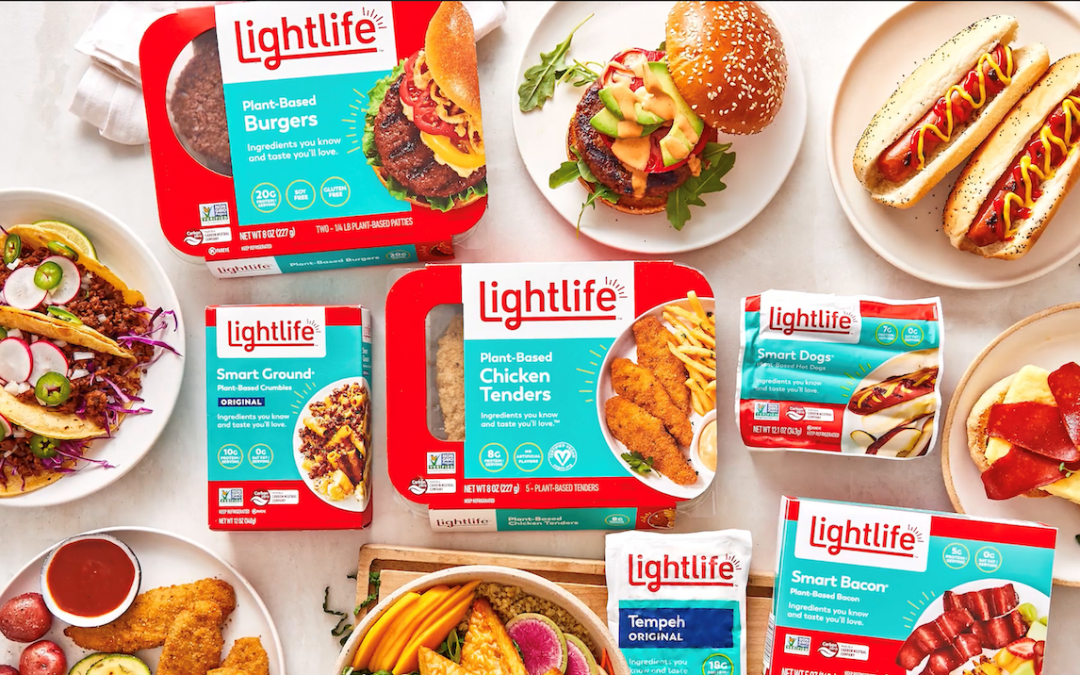
Lightlife
Image via Lightlife
- Product Types: Plant-based burgers, sausages, ground beef, chicken, deli slices, and tempeh.
- What We Like: Lightlife has joined the Greenleaf Foods Family and invested in the project to eliminate carbon emissions. These include Green-e and American Carbon Registry.
- Website: https://lightlife.com/
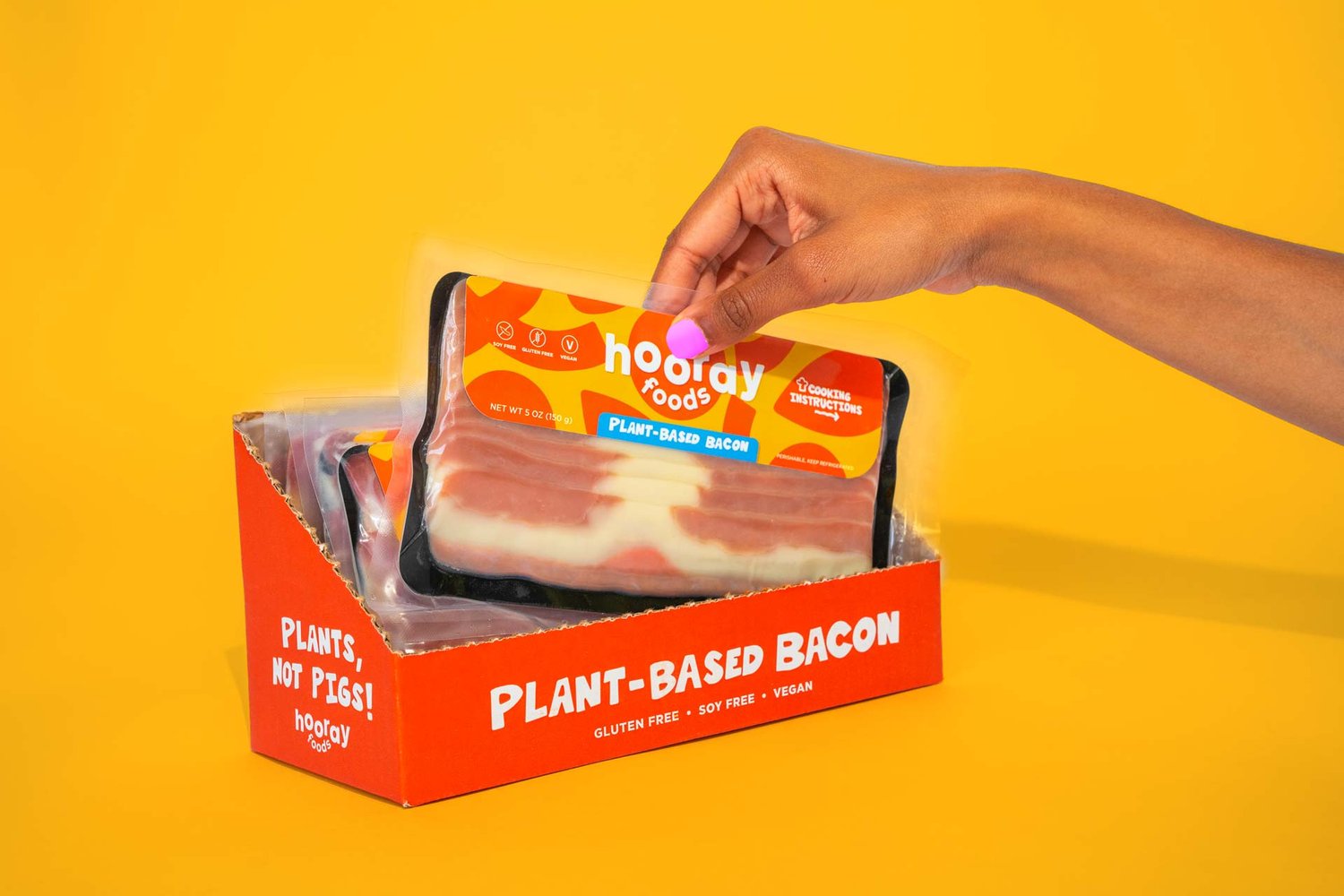
No Evil Foods
Image via Hooray Foods
- Product Types: Plant-based bacon
- What We Like: Hooray plant-based bacon is gluten-free and soy-free on top of being vegan!
- Website: https://www.hoorayfoods.com/

No Evil Foods
Image via No Evil Foods
- Product Types: Plant-based chicken, chorizo, pulled pork, turkey, and Italian sausage.
- What We Like: No evil foods are known to be plant-based and plastic negative certified.
- Website: https://www.noevilfoods.com/

